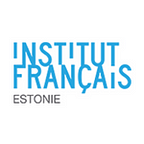In case you missed our #Opengov Meetup
French and Estonian civic tech scenes as seen by activists
On November 29th, the French Institute of Estonia and Open Knowledge Estonia held a meetup on open government and civic tech at Tallinn University. If you couldn’t attend, here’s how to catch up.
French projects were presented by Valentin Chaput, a Paris-based activist and entrepreneur, who was invited to Tallinn by the French Institute. You can find the slides he prepared for the meetup here:
Estonian initiatives have been introduced by members of the freshly born association Open Knowledge Estonia, for which it was the very first meetup of a cycle that should go on in the next months. They wrote a complete review of the event, that analyzes the strengths and weaknesses of the Estonian scene in the light of the French experiences that have been shared in the meetup. You can read their captivating report in Estonian on the following page:
If you can’t read Estonian, here’s a short version of the main info you should catch up.
The event, organized as an open discussion, was structured in 3 parts that correspond to 3 levels of implementation of open gov policies.
We started with a brief introduction to the Open Government Partnership, an international cooperation framework on digital democracy, that is holding its Global Summit next week (December 7–9th) in Paris. The main expected outcome is the opening of an open government “toolbox” that will allow all institutions and communities around the world to find and understand the best tools and use cases that have already been implemented. Several Estonian activists and officials are planning to do the trip to Paris (besides the President herself!) and Valentin Chaput invited them to speak at a side event dedicated to civic tech activists.
Read more about the OGP Global Summit and the toolbox in our post:
We went on by presenting several ways in which cities can transform their governance for a more inclusive decision making process. In France, the city of Nanterre (100K inhabitants) co-designed with activists from DemocracyOS a fully open source online platform dedicated to citizen consultations and the follow-up of municipal decisions. Since its launch in March 2016, participez.nanterre.fr increased the number of citizens involved in the decision making process by around 400%. In Estonia, a handful of activists built a prototype of a comparable platform, Open Tartu, over a weekend during a hackathon last October. After meeting the Helsinki-based communities earlier this month, they pivoted to the concept of 2 minutes for my city, an app willing to gamify the way citizens can give their input to local governments (read more about the concept). We also discussed participatory budgets in both countries. The one of Paris, launched in 2014, is the world’s biggest in volume (half a billion euros over six years, which represents 5% of the investment budget of the city). Originally designed in a purely top-down process, ordinary citizens are now encouraged to submit their own proposals every year. The number of voters, both online and offline, grew from 40K to almost 160K in 3 years. In Estonia, Tartu has been the first city to implement a participatory budget representing 1% of the investment budget.
We ended up the discussion with initiatives at a more national scale, starting with a debate on how open data can be used to monitor democracy. Born in 2009, the association of data activists Regards Citoyens tracks the activity of the French Parliament thanks to open data. Their most famous websites (nosdeputes.fr / nossenateurs.fr) evaluate the work achieved by each MP. They also developed tools that allow to visualize the detailed process of the parliamentary procedure for each bill (The Law Factory) or to track the impact of lobbying on the way the law is written (Lobby track). All of this is widely used by journalists, researchers, and sometimes activists. On the Estonian side, the Estonian Cooperation Assembly introduced a tool to reach out to national representatives. Rahvaalgatus.ee is platform where citizens can address petitions to the Parliament, which is a partner in this project. Once 1,000 legally recognized digital signatures are gathered to support a proposal, the Parliament is bound to initiate a legislative process to examine the idea. As of today, 3 laws have already been passed after suggestions made by citizens on this platform, that is still in beta.
After 2 hours of rich discussions, the shared conclusion was that the time for tools development is slowly coming to an end. Over the last years, many efficient platforms or softwares have been created and are now ready to scale up. The OGP toolbox is meant to spread their use, and allow anyone to improve them when it’s still needed. But it is now up to the civil society and governments to really seize the opportunity they represent to scale their impact and actually improve our lives as citizens. The next step for civic tech and open government is merely to make sure activists and civil servants learn how to empower citizens with the existing technology.
All of this took place in a cosy atmosphere, so don’t miss future events by the French Institute or Open Knowledge Estonia!
